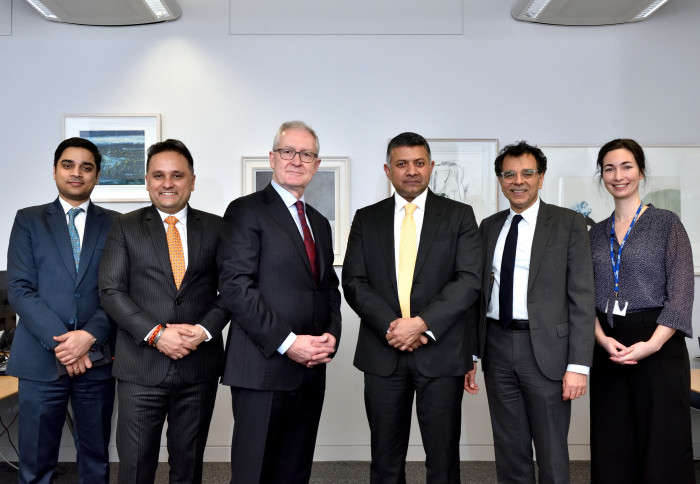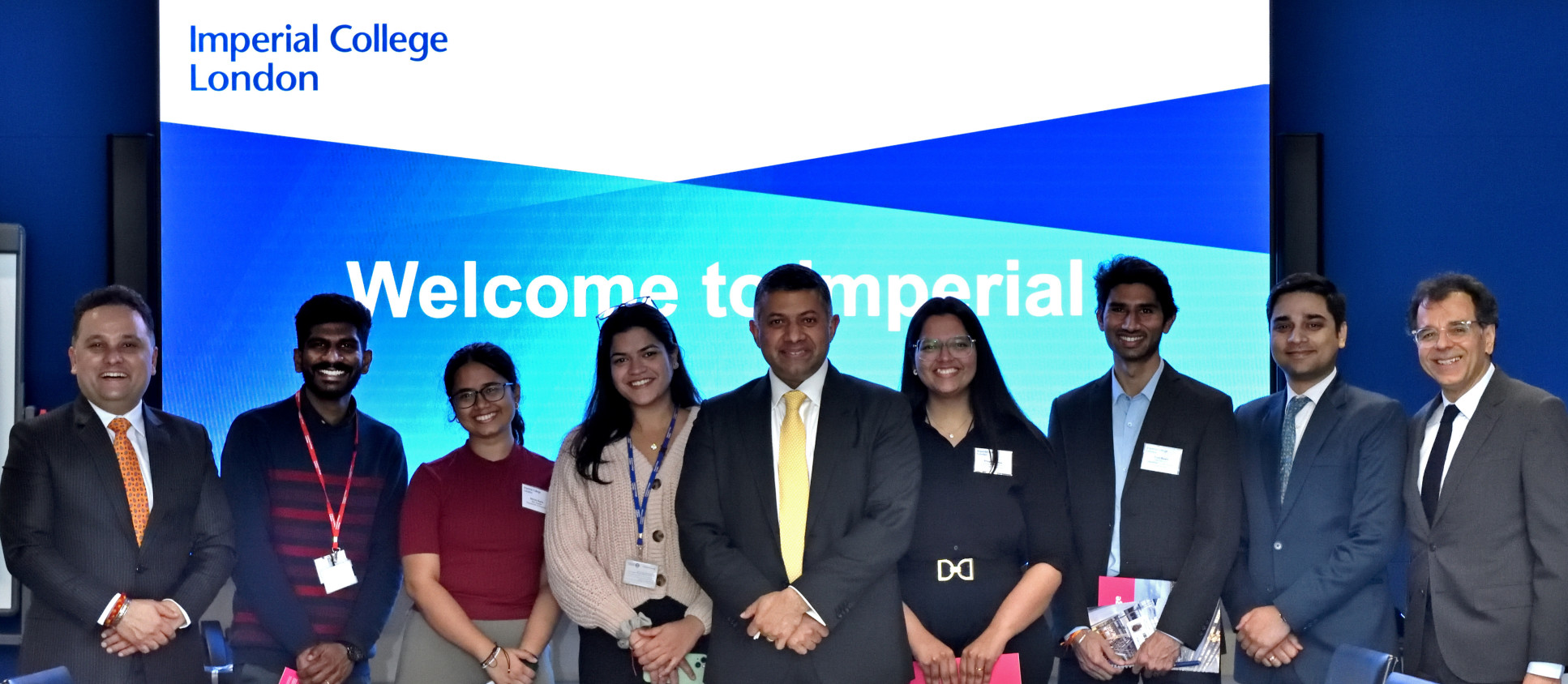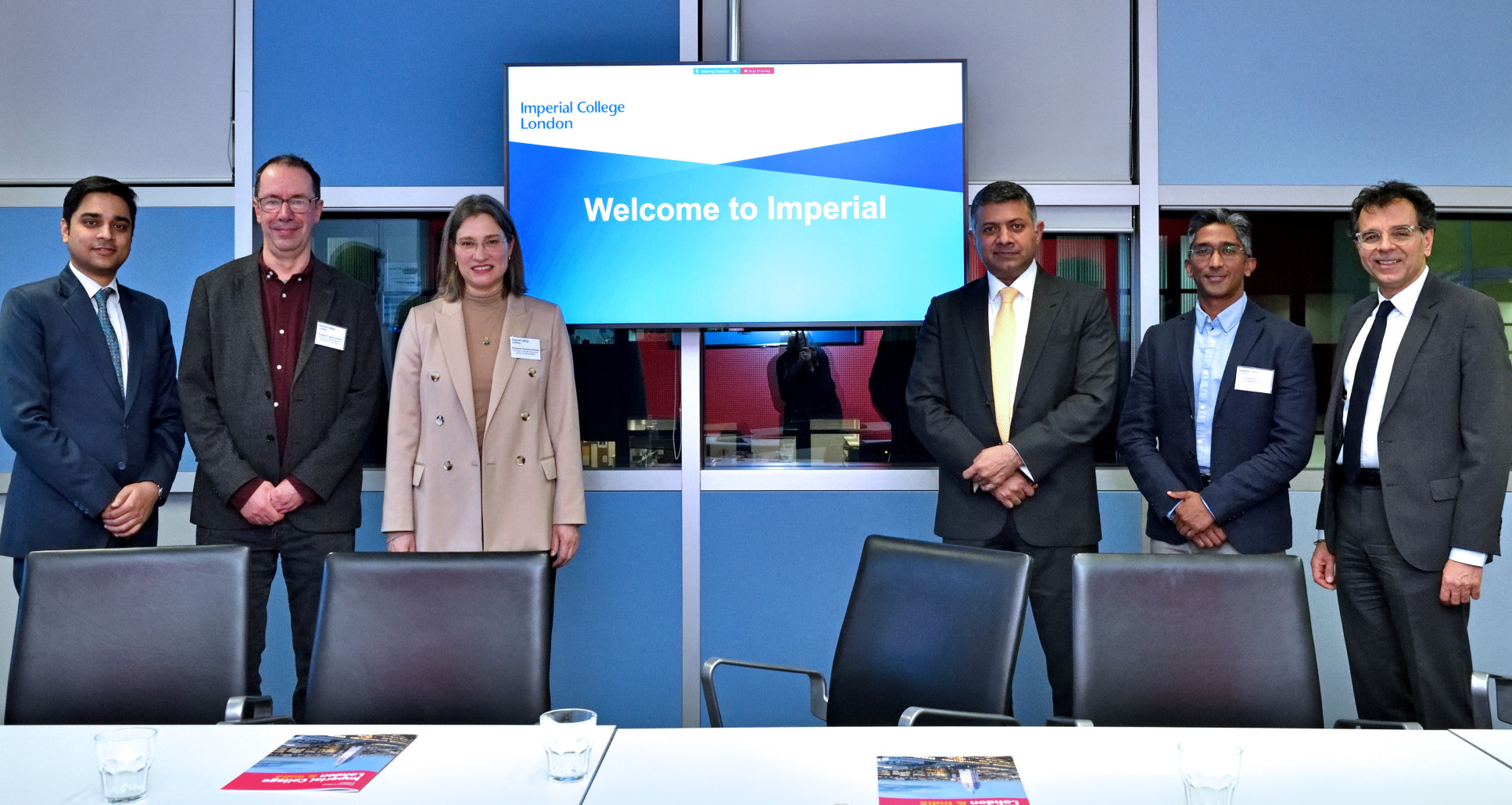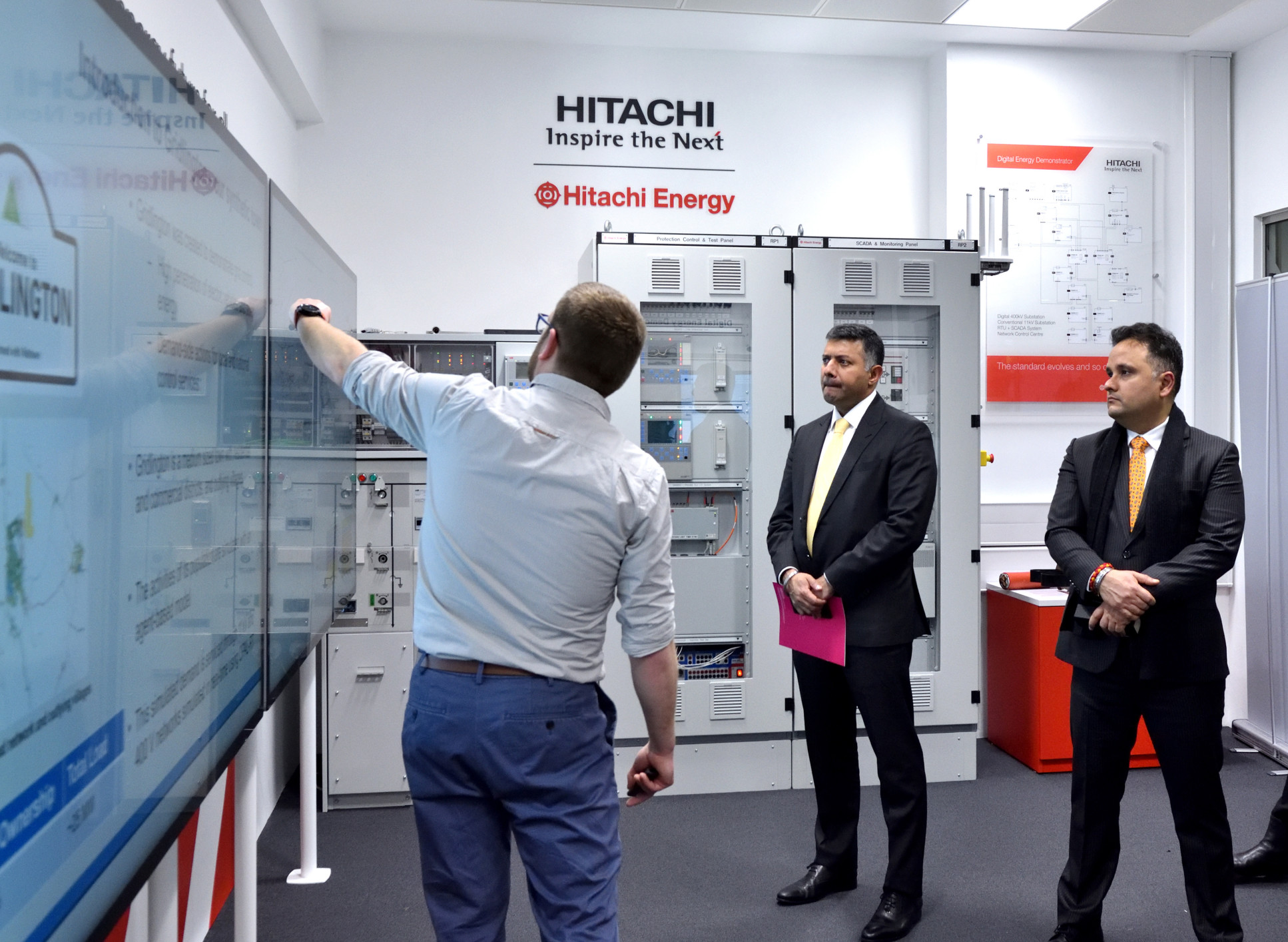Imperial welcomes India High Commissioner to College to discuss collaborations

Imperial welcomed the High Commissioner of India, His Excellency Mr Vikram K. Doraiswami, to the College to discuss deepening ties with the country.
The College has been growing research connections with India in a number of areas such as sustainability, water management and public health.
The High Commissioner met students and academics at the College to hear about some of the inspiring projects taking place with partners in India and how the College is strengthening ties across research, education and innovation.

Imperial’s President Hugh Brady welcomed the High Commissioner to the College and reiterated the College’s ambitions for deeper ties with India.
The High Commissioner was joined on the visit by Mr Amish Tripathi, the Minister for Education and Culture at the High Commission of India and Second Secretary Mr Shashi Bushan.
They met with Imperial academics including Professor Ajit Lalvani, from the National Heart & Lung Institute, and several of the College's Indian students.
Next generation solar technology
Professor James Durrant, from the Department of Chemistry, introduced the High Commissioner to Imperial’s Transition to Zero Pollution initiative, which aims to inspire fundamental changes in areas such as the way resource is exploited, how we produce food and energy, and will help mitigate the impact of air pollution on people's health.
Professor Durrant is the Imperial lead for the longstanding UK-India SUNRISE programme. SUNRISE aims to address global energy poverty through developing next generation solar technologies. Imperial academics are part of an international consortium working with industry partners and local communities to build five solar-powered building demonstrators in rural India using local manufacturing supply chains. Building on this programme, Imperial academics in the Faculty of Natural Sciences have started work with partners at the Indian Institute of Science to continue to explore battery devices for renewable electricity
Disease modelling

Imperial’s School of Public Health has been collaborating with the Indian Council of Medical Research (ICMR) in support of India’s COVID-19 response.
Academics from the Jameel Institute and MRC Centre for Global Infectious Disease Analysis, including Professor Katharina Hauck and Professor Nimalan Arinaminpathy, have supported scientists within the ICMR, to perform modelling analysis to address key questions faced by public health authorities in the country. For example, early in India’s vaccination drive against COVID-19 – the largest in the world – Imperial collaborated with the ICMR to provide modelling analysis informing the prioritisation of risk groups.
A major focus of Professor Arinaminpathy team’s research is in the control of human tuberculosis (TB) in high-burden countries. They work closely with India's National Tuberculosis Elimination Programme, contributing mathematical models to help inform intervention planning to meet India's ambitious goals for TB elimination. They are also working with several partners including Indian Institute of Technology Bombay, the Ministry of Health and the Gates Foundation on a new partnership for TB modelling training.

The High Commissioner also visited Imperial’s Energy Demonstrator where Dr Phil Clemow explained how the research and teaching facility provides researchers and students with state-of-the-art examples of energy network control technologies.
Imperial and India
In the last five years Imperial academics co-authored just over 1,200 research publications with partners at more than 300 Indian institutions.
Research partners include the Indian Institute of Science Bangalore, All India Institute of Medical Sciences, Christian Medical College, Indian Institute of Technology Bombay, Indian Institute of Technology Kharagpur, the Bhaba Atomic Research Centre and the Tata Institute of Fundamental Research.
There are currently 700 Indian students at the College, and in India there is a community of more than 3,000 alumni.
In 2022, Imperial formalised its longstanding connections with the Indian Institute of Science Bangalore (IISc) through a joint Research and Education Seed Fund. Co-funded projects are focusing on areas including quantum physics, water management and air pollution.
Imperial also partnered with the George Institute for Global Health India to establish a £10M NIHR Global Health Centre for Non-Communicable Disease and Environmental Change. The Centre launched in November 2022 and is based in Delhi.
Last year Imperial hosted the UK-India Science and Innovation Partnerships dialogue with the previous High Commissioner Ms Gaitri Issar Kumar
Article text (excluding photos or graphics) © Imperial College London.
Photos and graphics subject to third party copyright used with permission or © Imperial College London.
Reporter
Stephen Johns
Communications Division